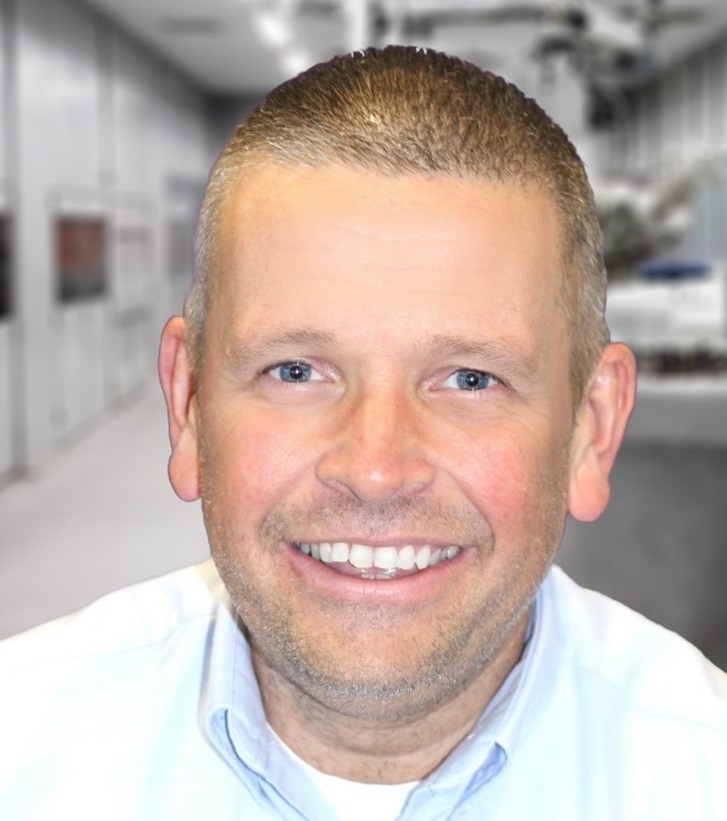Rise to Leadership - Richard Cook's Story: The Future
For the final part of our three-part leadership series with Richard Cook, Managing Director at Castings Technology International, we explore his leadership insights, predictions for the future, biggest achievements and challenges over his 40+ year career…
What would you say are the biggest challenges and the best achievements you’ve had in your career so far?
Transitioning from being on the shop floor to management, board level, and eventually owning a company has been both a challenge and an achievement for me. As a young apprentice, I never imagined being in this position 40 years ago. Looking back, I feel that my development trajectory from an apprentice to a manager would have been better served with some supporting financial qualifications or possibly an MBA – something I would heartily recommend to those at the beginning of their careers. However, I consider myself fortunate to have worked with several finance professionals who have helped me overcome any shortcomings I may have had in the past and once you take ownership of a business, financial acumen becomes increasingly important…quickly!
Biggest Challenges in my career:
- Listening and Open-Mindedness: One of the significant challenges has been the need to actively practice listening and staying open-minded. This entails attentively listening to employees dealing with personal issues and being receptive to different perspectives, especially in a team environment.
- Overcoming the Belief of Always Being Right: In a similar vein, controlling any tendency to think you already know the answer. In my experience, recognising this as a weakness and subsequently suppressing it, is a valuable trait.
- Working with Ignorant Individuals: Managing collaboration with people who are unwilling to be persuaded otherwise, despite a lack of knowledge or awareness in certain areas has proven to be a recurring challenge.
- Dealing with Unproductive Team Members: Historically, a hesitancy in addressing and managing underperforming team members was a challenge. Filling in for others’ shortcomings rather than confronting the issues was a habit that needed to be overcome, particularly as I transitioned into management roles.
- Management without toxicity: Management is not always inspiring and fun, indeed it can be a lonely place at times, especially when difficult decisions need to be made. However, there is not, nor has there ever been any justification for toxic behaviour. Treating people with respect, regardless of the situation, is imperative.
Achievements in my career:
 Career Progression from Apprentice to Management: Transitioning from an apprentice to a managerial role, while not without its challenges, has been a significant accomplishment. However, it’s noted that some stages of this progression may have occurred a little too quickly in some respects.
Career Progression from Apprentice to Management: Transitioning from an apprentice to a managerial role, while not without its challenges, has been a significant accomplishment. However, it’s noted that some stages of this progression may have occurred a little too quickly in some respects.- Effective People Management and Team Development: Developing strong people management skills, including the ability to set clear expectations and address performance issues, is considered an achievement. Ensuring that team members respect and value each other’s contributions has been instrumental in building high-performing work teams.
- Strong HR Background: Building on a strong foundation in human resources, including dealing with restructuring and discipline in both unionised and non-unionised environments, has been an achievement. This expertise extends way beyond ‘managing payroll’, encompassing strategic HR considerations, attraction, retention, development, succession, and reward.
- Ownership of a Business: Taking ownership of a business and successfully managing it is a significant accomplishment. The ability to make strategic decisions, invest in new ventures, and oversee various aspects of the company is a notable achievement and materially different to my past career, where I worked more ‘in’ as opposed to ‘on’ the business.
- Positive Impact on Employee Development: Receiving positive feedback from current and former employees is cited as an achievement that underscores the positive impact on people’s careers. The development and success of individuals who have worked with me is a source of pride and provides the greatest satisfaction in terms of return on investment for me personally.
- Independence and Decision-Making: Being in a position where one can make decisions independently, without the need to seek approval or investment from others, is a major achievement. It offers greater autonomy and control over the direction of the business whilst being mindful of the need to listen and be open-minded.
- Effective Collaboration with Business Partner: Collaborating effectively with a business partner who has significant complementary experience has contributed to the overall success of the venture. This partnership has resulted in a well-rounded, prudent approach to business management.
- Team Retention: Ensuring the retention of valuable team members is considered an accomplishment. This not only reduces the cost of replacing employees but also reflects the ability to create an environment where people want to stay and contribute positively. This has become increasingly difficult in the post-Covid recruitment landscape.
- ‘Giving Back’: I have for many years been an avid supporter of, and advocate for ‘meaningful’ Apprenticeships; i.e. not the oft-diluted offerings of the current era. I have always believed that an Apprenticeship is an “intense 5 to 7-year acquisition of skills and experience, that provides an invaluable springboard for your future career”. For this reason, both myself personally, Kev Parkin and the Company invested heavily in industry/academia collaboration; including inspirational, reciprocal visits and presentations with local schools and colleges.
As a passionate motorcyclist, I have also been able to invest in a sport that has given me so much pleasure over decades via the sponsorship of two brilliant young riders: Dan & Jamie Ingham (https://www.facebook.com/daniel.ingham.39, https://www.facebook.com/jamie.ingham.1293) who compete on the roads and short circuits respectively (as part of our CTI Motorsport team). I enjoy this activity immensely and wish them all the best for a safe and successful season; thanks are due also to our many fellow sponsors and supporters.
What key projects or areas are you currently working on?
Currently, there are a couple of substantial projects that I’m actively involved in, although I’m bound by strict non-disclosure agreements that prevent me from sharing specific details. I did mention that there are some overseas endeavours in progress. Broadly speaking, I can mention that we are focused on two key areas at the moment:
Acquisitions: We are exploring various opportunities for acquisitions. These potential acquisitions align with our strategic goals and growth plans.
Business Growth Planning: Another significant aspect of our current efforts is the meticulous planning for the growth of our business. The planning for the expansion of our operations, despite (or due to) significant constraints is a crucial component of our current initiatives.
What are your predictions for the world of engineering and manufacturing over the next five years? How do you think industry professionals can respond?
When we consider the future of engineering and manufacturing in the UK over the next five years, we see that there are both challenges and opportunities ahead. Looking at the difficulties, we can see that one major problem is that manufacturing in the UK is not given enough recognition and value. This sector is often overlooked by both the public and politicians. This lack of attention can have serious consequences, affecting funding, support, and policy decisions. It’s important to address this issue.
- Risk of stagnation in continuous improvement. The principles of lean manufacturing and ongoing process enhancements have been in use for several decades. It’s essential to find innovative ways to keep these principles relevant and effective, especially in a rapidly changing technological landscape.
- Technological advancements while promising, present a unique challenge. Concepts such as Industry 4.0, digitisation, and the Internet of Things (IoT) have great potential, but their integration can be complex. Furthermore, the rapid pace of technological evolution demands ongoing adaptation and learning, which can be both a challenge and an opportunity.
- The lack of government support is another pressing concern. The absence of a dedicated Minister for Manufacturing and the inconsistency of policies hinder the growth and development of the sector. This (continued) lack of cohesive support will have long-term consequences for manufacturing in the UK.
- Rising costs particularly in utilities like electricity and gas, pose financial challenges for manufacturers. Inflationary pressures can affect pricing, competitiveness, and profitability, adding yet another layer of complexity to the landscape. It’s essential to consider Small Modular Reactors, ideally made in this region, to ensure both the requisite capacity and security of energy supply.
- Sustainability and the circular economy are likely to gain more prominence. With increasing environmental concerns, there will be a growing emphasis on adopting eco-friendly and resource-efficient processes. Companies that prioritise sustainability will likely have a significant competitive advantage.
- Advanced manufacturing technologies including additive manufacturing (3D printing), are expected to evolve further, potentially revolutionising how products are designed and produced. These advancements could lead to more complex and efficient manufacturing processes that were impossible by any other means.
- Digital transformation is another area of focus. The integration of digital twins, artificial intelligence (AI), and data analytics is set to become more widespread. These technologies offer opportunities to enhance efficiency, enable predictive maintenance, and facilitate better decision-making.
- Addressing the skills gap in engineering and manufacturing will remain a priority. To tackle this challenge, there will likely be increased efforts to promote STEM (Science, Technology, Engineering, and Mathematics) education and professional development. It’s also crucial to raise awareness about the diverse career opportunities within engineering with young people at an early age. We need to embrace and promote our manufacturing sector with pride, as seen in other regions – particularly Germany & Italy.
- Industry professionals can play a vital role in responding to these challenges and opportunities. Advocating for the manufacturing sector, both in terms of its economic importance and its growth potential, is crucial. Additionally, embracing innovation and sustainability will be key, as will collaborating with educational institutions, government bodies, and industry associations to address challenges collectively.
- Supporting skills development and engaging with policymakers to emphasise the importance of a coordinated and supportive approach to manufacturing are essential steps. While challenges exist, proactive industry professionals can lead the way in addressing these issues and capitalising on emerging opportunities to ensure the continued growth and success of the sector.
We’d like to thank Richard for contributing to the Engineering/Manufacturing sector throughout his inspirational career and for sharing his journey with us in this interview series.
Richard Cook, Managing Director at Castings Technology
Richard is responsible for Castings Technology’s global business activities and
following on from the successful MBO with Kevin Parkin, is the Managing Director
and majority shareholder at Castings Technology. Connect with Richard on LinkedIn.






